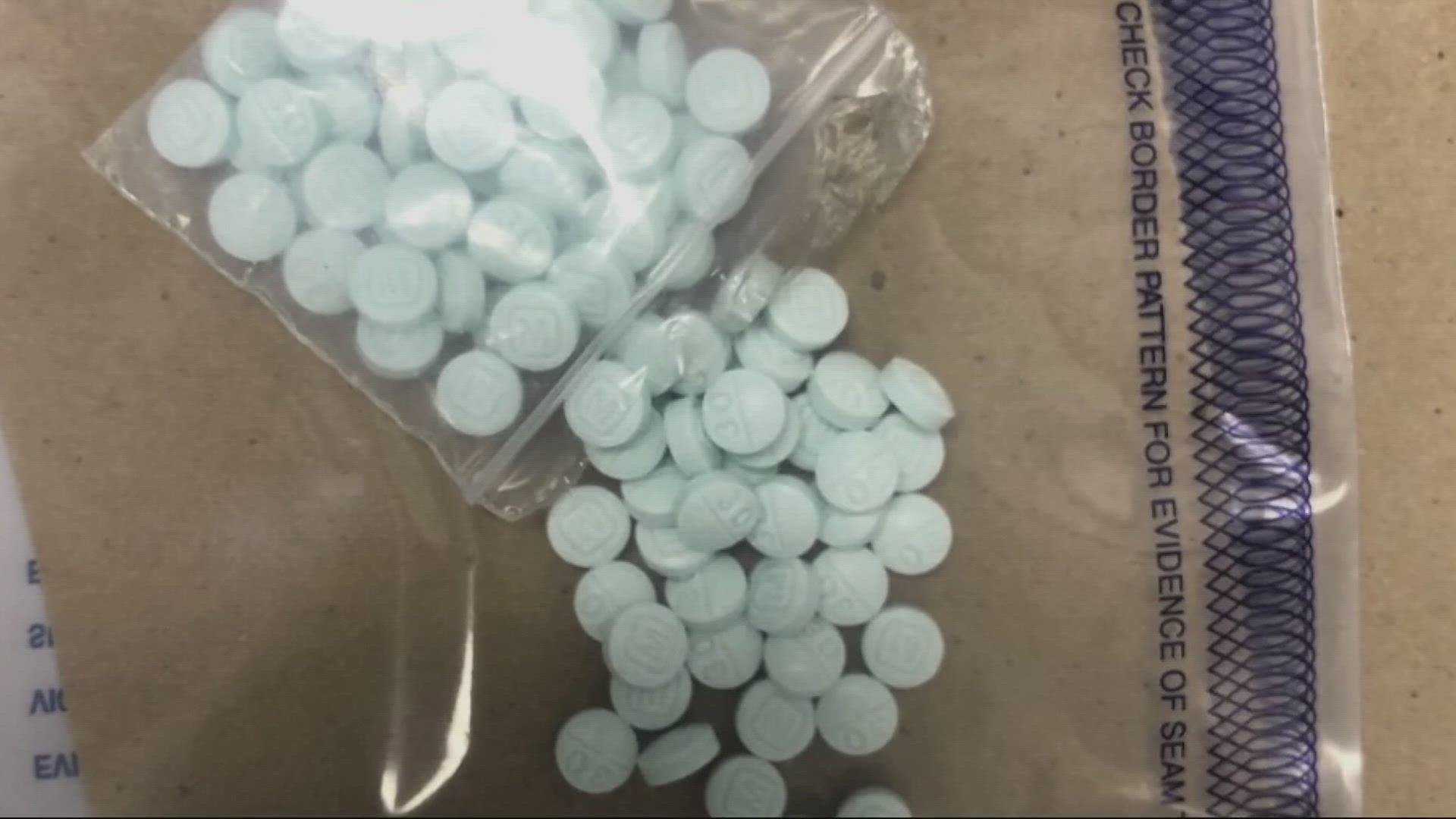PORTLAND, Ore. — The fentanyl crisis is seemingly everywhere in Oregon, putting a strain on first responders. Overdoses are up, people are dying, and police point to the cheap, blue fentanyl pills as a main factor. The crisis has been making its way into Portland schools, prompting legislative action to try to protect students.
Late last week, a bill passed the Oregon House calling for an age-appropriate fentanyl curriculum to be added to existing drug and alcohol classes in middle and high schools.
“Being from my age group, there’s been drugs in schools all the time, all the time, whether it’s marijuana, meth, cocaine, and now fentanyl,” said a man who works in downtown Portland.
The bill also aims to educate students on the laws that provide immunity to people who report fentanyl use or seek treatment.
Earlier this year, a student at Franklin High School in Portland died of a suspected fentanyl overdose, and last year two other students from McDaniel High School died the same way.
According to data from Multnomah County’s health department, opioid misuse among youth is decreasing, but overdoses are increasing.
“Youth will have access to whatever is in their environment,” said county health officer Dr. Teresa Everson. “The drugs are there, and I do think it’s really important for us to recognize the change and trends in drugs and to be able to keep up with that and make sure youth are armed with the information that they need.”
At the county level, Everson said staff are enhancing youth drug screening and upping distribution of the opioid overdose-reversal drug naloxone, among other efforts.
“This feels like a cliché but it’s true that knowledge is power. If people know what the real risks are and what to do if they’re worried or where to go for information, I think that’s absolutely helpful,” Everson said.
The bill in Salem is still going through the legislative process and has not yet reached Gov. Tina Kotek's desk, but it already passed the Senate back in April.
Meanwhile, the county health department has been meeting for six months with a group of experts — from corrections officers to treatment and behavioral health providers — to create strategies to try and stay ahead of the fentanyl crisis. A two-day “action planning session” is planned for early June.

